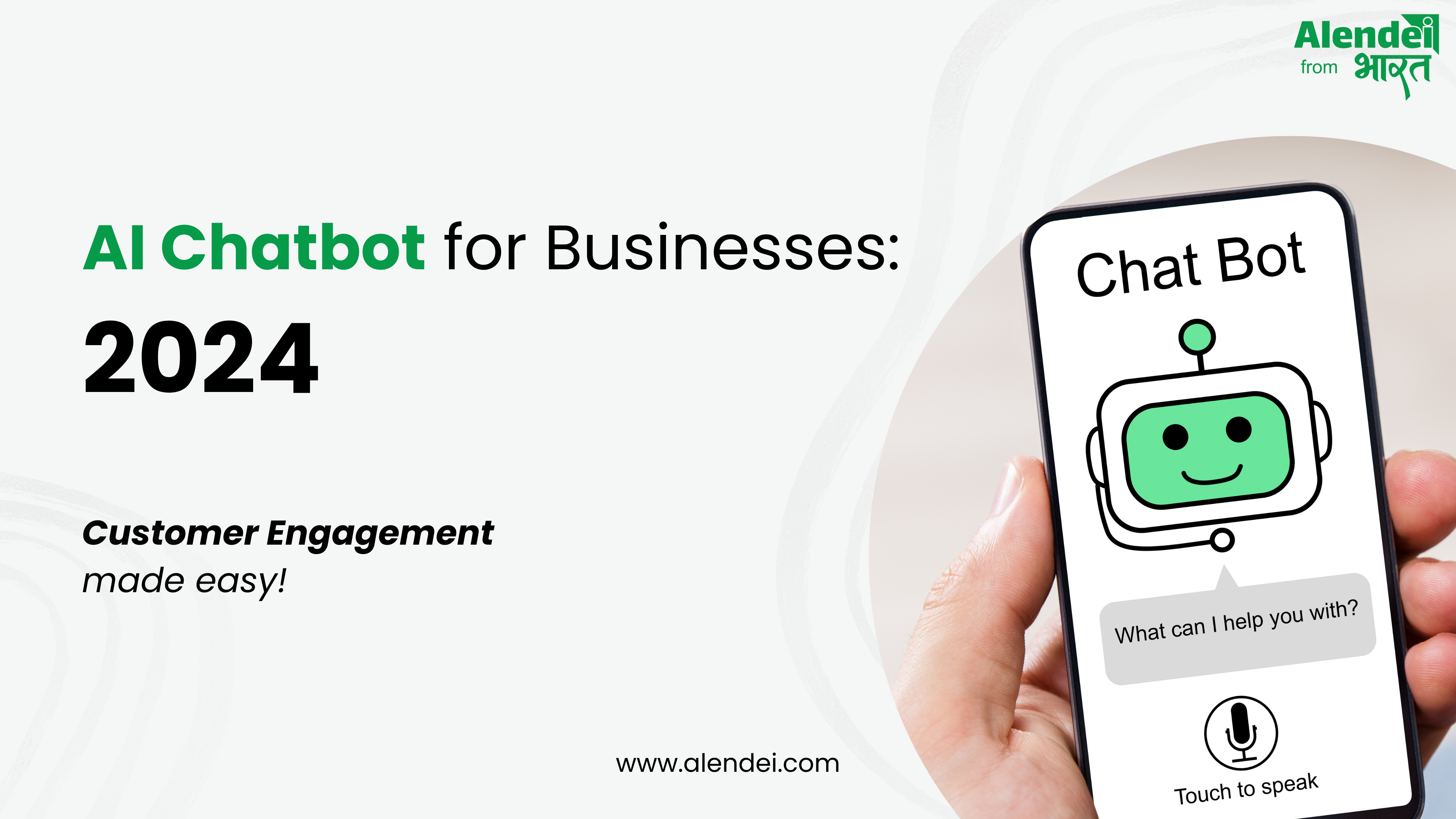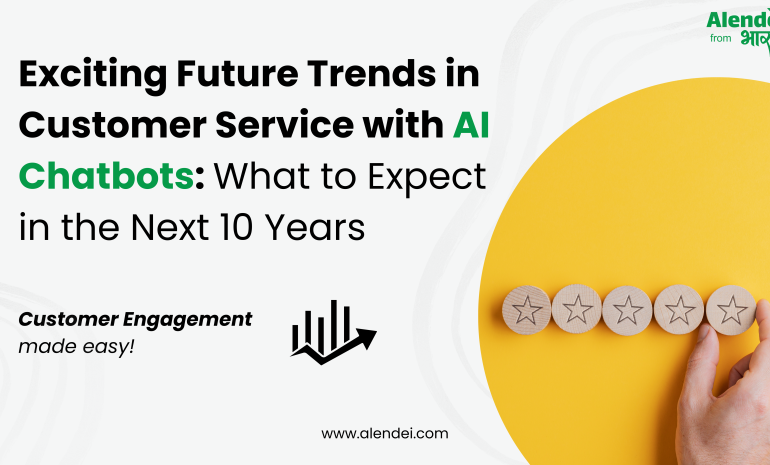Any sufficiently advanced technology is indistinguishable from magic.
Arthur C. Clarke
Introduction
AI chatbots for businesses have become a transformative force in the business world, redefining how companies interact with customers and manage their operations. These sophisticated virtual assistants leverage artificial intelligence to simulate human conversations, providing a seamless and efficient way to address customer inquiries, automate routine tasks, and gather valuable data. But what exactly are AI chatbots, and how can they benefit your business?
What Are AI Chatbots?
At their core, AI chatbots are software applications that use natural language processing (NLP) and machine learning algorithms to understand and respond to human language. They can be integrated into websites, mobile apps, social media platforms, and messaging services, enabling businesses to offer instant support and engage with customers in real time. Unlike traditional chatbots that operate on pre-defined scripts, AI chatbots continuously learn from interactions, becoming smarter and more effective over time.
The Evolution of AI Chatbots in Business
The journey of AI chatbots began with simple rule-based systems designed to handle basic queries. Over the years, advancements in artificial intelligence, particularly in NLP, have transformed these systems into highly sophisticated tools capable of understanding context, sentiment, and intent. Today’s AI chatbots are efficient problem solvers and play a crucial role in enhancing customer experiences and driving business growth.
Benefits of AI Chatbots for Businesses
Enhanced Customer Service
One of the most significant advantages of AI chatbots is their ability to provide superior customer service. By offering 24/7 support, chatbots ensure that customer queries are addressed promptly, regardless of time zones or business hours. This level of availability significantly boosts customer satisfaction and loyalty, as clients appreciate the instant assistance.
Cost Efficiency and Savings
AI chatbots can handle a vast number of interactions simultaneously, reducing the need for large customer support teams. This scalability leads to significant cost savings, as businesses can manage high volumes of customer inquiries without the added expense of hiring and training additional staff. Moreover, chatbots can automate routine tasks, freeing up human agents to focus on more complex issues.
Increased Availability and Response Time
In today’s fast-paced world, customers expect quick responses. AI chatbots excel in this area, offering immediate answers to common questions and resolving issues in real time. This instant response capability not only enhances customer experience but also increases the likelihood of converting inquiries into sales.
Data Collection and Analysis
Every interaction with an AI chatbot generates valuable data that businesses can use to gain insights into customer behavior, preferences, and pain points. By analyzing this data, companies can make informed decisions, tailor their marketing strategies, and improve their products and services. AI chatbots also help in identifying trends and predicting future customer needs.
Personalization and Customer Engagement
Modern AI chatbots can deliver highly personalized experiences by leveraging customer data. They can recommend products, provide customized solutions, and even remember past interactions to offer a more tailored service. This level of personalization fosters stronger customer relationships and enhances engagement.
Implementing AI Chatbots in Your Business
Choosing the Right AI Chatbot Platform
Selecting the right platform is crucial for the successful implementation of AI chatbots. Businesses should consider factors such as ease of use, integration capabilities, scalability, and the level of customer support provided by the platform. Popular AI chatbot platforms include IBM Watson, Google Dialogflow, and Microsoft Bot Framework, each offering unique features and benefits.
Key Features to Look For
When evaluating AI chatbot platforms, it’s essential to look for key features such as natural language understanding, machine learning capabilities, multi-channel support, and robust analytics. Additionally, consider the platform’s ability to handle complex queries, support multiple languages, and integrate with existing CRM and customer support systems.
Integrating AI Chatbots with Existing Systems
For AI chatbots to be effective, they must seamlessly integrate with a company’s existing systems and workflows. This integration ensures that chatbots can access relevant data, provide accurate information, and update records in real time. Businesses should work closely with IT teams and chatbot providers to ensure smooth integration and optimal performance.
Case Studies of AI Chatbots in Action
AI Chatbots in Retail
In the retail industry, AI chatbots are revolutionizing customer service and sales processes. For instance, H&M’s chatbot on the Kik messaging app helps customers find outfits based on their preferences, providing personalized fashion advice and increasing customer satisfaction. Similarly, Sephora’s chatbot on Facebook Messenger offers product recommendations and allows users to book makeovers, enhancing the overall shopping experience.
AI Chatbots in Healthcare
Healthcare providers are leveraging AI chatbots to improve patient care and streamline administrative tasks. Chatbots like Ada Health and Buoy Health assist patients in diagnosing symptoms, providing medical advice, and scheduling appointments. These chatbots not only enhance patient engagement but also reduce the burden on healthcare professionals, allowing them to focus on critical tasks.
AI Chatbots in Finance
The finance sector is also embracing AI chatbots to enhance customer service and streamline operations. For example, Bank of America’s Erica chatbot provides customers with personalized financial advice, helps with transactions, and monitors account activity for potential fraud. These capabilities improve customer experience and ensure secure, efficient banking operations.
Challenges and Considerations
Common Challenges in Implementing AI Chatbots
Despite their benefits, implementing AI chatbots comes with challenges. One common issue is ensuring the chatbot understands and accurately responds to diverse customer queries. Additionally, integrating chatbots with existing systems can be complex, requiring significant time and resources. Businesses must also continuously monitor and update their chatbots to maintain optimal performance.
Addressing Security and Privacy Concerns
As AI chatbots handle sensitive customer data, security and privacy are paramount. Businesses must implement robust security measures, such as encryption and secure authentication, to protect data. Compliance with regulations like GDPR is also crucial to avoid legal repercussions and maintain customer trust.
Ensuring a Seamless Customer Experience
For AI chatbots to be effective, they must provide a seamless and intuitive user experience. This involves designing user-friendly interfaces, ensuring fast response times, and providing clear, accurate information. Businesses should also offer an easy way for customers to escalate issues to human agents when necessary.
Future Trends in AI Chatbots
Advancements in Natural Language Processing (NLP)
The future of AI chatbots is bright, with continuous advancements in NLP leading the way. Improved NLP capabilities will enable chatbots to understand and respond to complex queries with greater accuracy, providing more human-like interactions. These advancements will further enhance the effectiveness of chatbots in various business applications.
The Role of AI Chatbots in Omnichannel Strategies
As businesses adopt omnichannel strategies to provide a seamless customer experience across multiple touchpoints, AI chatbots will play a crucial role. Chatbots can offer consistent support and personalized interactions across websites, mobile apps, social media, and other channels, ensuring a unified and engaging customer journey.
Frequently Asked Questions about AI Chatbots
How do AI chatbots improve customer service?
AI chatbots improve customer service by providing instant, 24/7 support, handling a high volume of inquiries simultaneously, and offering personalized assistance based on customer data. This enhances customer satisfaction and loyalty.
What are the cost benefits of using AI chatbots?
Using AI chatbots can lead to significant cost savings by reducing the need for large customer support teams and automating routine tasks. This allows businesses to allocate resources more efficiently and focus on more complex issues.
Can AI chatbots handle complex customer queries?
Yes, modern AI chatbots are equipped with advanced NLP and machine learning capabilities, enabling them to understand and respond to complex queries. However, it’s essential to continuously update and train chatbots to maintain their effectiveness.
What industries benefit most from AI chatbots
Industries such as retail, healthcare, finance, and customer service benefit significantly from AI chatbots. These sectors leverage chatbots to enhance customer interactions, streamline operations, and gather valuable data insights.
How do AI chatbots integrate with other business systems?
AI chatbots for businesses integrate with business systems through APIs and other integration tools, allowing them to access and update relevant data in real-time. This seamless integration ensures that chatbots provide accurate information and maintain a smooth workflow.
What are the security concerns with AI chatbots?
Security concerns with AI chatbots include data breaches, unauthorized access, and compliance with privacy regulations. Businesses must implement robust security measures and ensure their chatbots adhere to legal requirements to protect customer data.
Conclusion
In conclusion, AI chatbots for businesses are transforming the way companies operate by enhancing customer service, improving efficiency, and providing valuable data insights. As technology continues to evolve, the potential for AI chatbots to drive business growth and innovation is immense. By addressing challenges and staying abreast of future trends, businesses can fully harness the power of AI chatbots to achieve their goals.
For more insights and to see how AI chatbots can revolutionize your business, visit Alendei and check out their LinkedIn page. Get a free demo today and take the first step towards transforming your customer service experience!

